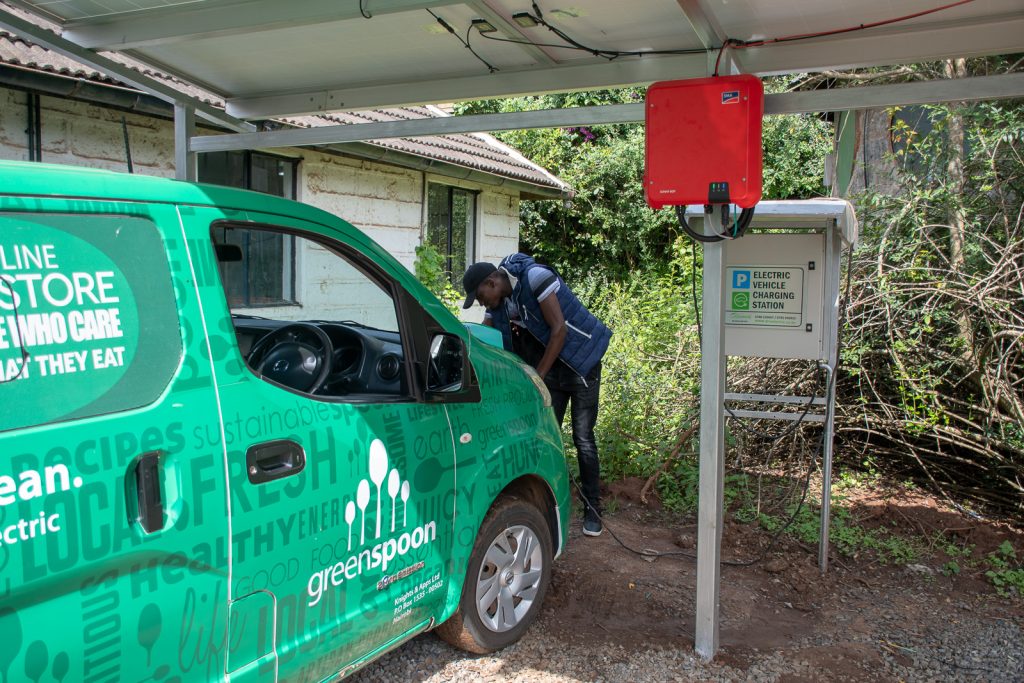
Electric mobility provides a good opportunity for Kenya to reduce emissions from transport (by about 0.6 MtCO2e against the Business as Usual scenario in 2030) and improve air quality (GIZ 2018, p. 16). However, electric mobility uptake in the country is still very modest. Most stakeholders are under the impression that very little is happening around electric mobility. This leads to minimal engagements between policymakers and others key players on the issue. Hence, it is prudent to call the public’s attention to ongoing initiatives. This enables discussions around creation of a facilitative environment for the technology.
Against this backdrop, GIZ’s Advancing Transport Climate Strategies (TraCS) project, together with a host of partners, organized a series of events on electric mobility in Kenya. The events covered three broad areas: the current state of electric mobility in Kenya, rural and urban application of electric mobility, and electric mobility and the energy supply in Kenya.
A key take-away from the event is that the electric mobility space in the country is gradually gaining momentum. There is an increasing number of players coming in and driving the transition. So far, most of the focus is on electric two-wheelers largely driven by private companies with minimal government intervention. The government expressed its intentions to electrify one of the BRT corridors in the country, and stated plans to improve existing regulatory hurdles. Overall, the series showed increased interest from the public, government agencies as well as private companies.
The state of electric mobility in Kenya
The first event highlighted the benefits of electric mobility for the country. This included improved air quality, reduction of greenhouse gas emissions, and positive economic impacts of the technology through the creation of new local value chains. It also noted the transformative potential of electric motorcycle uptake in the country, presented more than 10 companies developing electric mobility products in the country already, showcased new electric mobility standards developed by the Kenya Bureau of Standards, as well as brought to attention the halving of excise duty charged on electric car imports from 20% to 10%.
Rural and urban applications of electric mobility in Kenya
The second event explored the application of electric mobility in both rural and urban areas of the country. This included input from Knights Energy, Siemens Stiftung and Wetu. Siemens is partnering with GIZ to implement an electric mobility pilot in rural areas of western Kenya.
The Siemens project aims at generating empirical data on the types of e-mobility applications that would work in a rural setting. The project assesses business models that fit local conditions through piloting of E-Cargo Bikes, E-Trucks, E-Motorcycles and E-Boats.
Knights Energy on the other hand is providing solutions for ownership and operations of electric vehicles in Kenya.
Wetu is a social enterprise. It provides e-mobility vehicles and charging infrastructure as well as business models to rural areas of Kenya.
Electric mobility and the energy supply
The topic of the third event was energy supply in the country and the grid’s capabilities to support increased uptake of electric mobility. Panellists represented Kenya Power and Lighting Company (KPLC) as well as Opibus and the Association of Energy Professionals of East Africa. Energy conditions in Kenya seem to be advantageous for electric mobility for several reasons: Kenya has a reserve capacity of more than 800 Megawatts, with which it could easily support increases in the uptake of electric mobility. Moreover, the high share of renewable energy of more than 70% in Kenya’s energy mix further increases the potential.
The events attracted up to about 500 participants in total for both the live sessions and the recordings (watch session 1, 2 and 3 here). Participants were largely interested in the government’s efforts in electric mobility, this included; interventions with regards to electric vehicle registration challenges, incentives for local manufacturers, developments around charging infrastructure, concerns on the state of batteries of second hand EV imports, in-country purchasing costs of EVs, charging time for EVs, existence of battery swap stations and many more.
Currently, SDoT in partnership with GIZ are conducting a study on the regulatory set up in Kenya with regards to electric mobility. The study will give policy recommendations on statutory requirements for electric mobility uptake in the country. Once finalised the study will be made available on changing-transport.org.
The webinar series was organized under the Advancing Transport Climate Strategies (TraCS) project implemented by GIZ. The project is funded by the German Federal Ministry for the Environment, Nature Conservation and Nuclear Safety through the International Climate Initiative (IKI).
